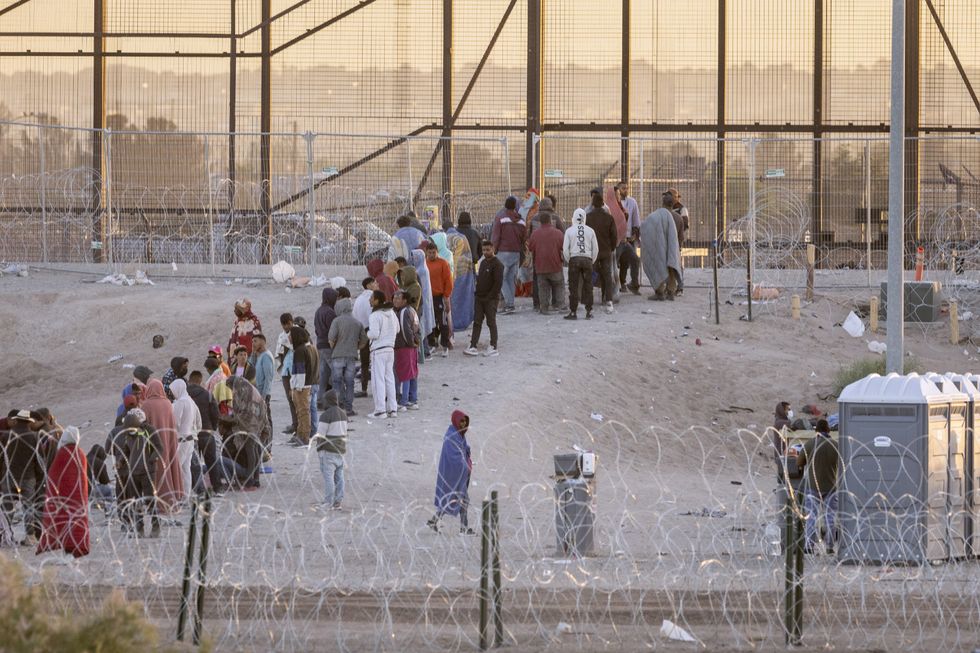Will Israel-Hamas ceasefire breakthrough push Iran back from the brink?
One of the key sticking points is the number of Israeli hostages still alive in Hamas captivity, and how many prisoners the Gaza-based terrorist group will try to extract as part of the deal.



JERUSALEM – Intense diplomatic efforts – and the presence of two U.S. aircraft carriers, a cruise missile submarine, a few thousand marines, other naval assets, and a squadron of F-22 Raptors – may have borne fruit in the attempts to stave off a potentially downward-spiraling situation between Israel and the Islamic Republic. Just the small matter of a potential ceasefire deal between the Hamas nihilists in Gaza and Israel might now stand in the way.
U.S. President Joe Biden, who apart from being filmed sunning himself on a Rehoboth, Maryland, beach, has been largely absent from public life since being forced by his Democratic Party colleagues from his bid for reelection last month, expressed reserved hope a deal could be reached.
“We’ll see what Iran does and we’ll see what happens if there is any attack. But I’m not giving up,” Biden told reporters on the tarmac after arriving at Louis Armstrong New Orleans International Airport.
For its part Iran, which may have been looking for an off-ramp to avoid the escalation it so precipitously threatened, has warned its hand will only be stayed by a ceasefire agreement between Israel and Hamas.
Prospects of a deal
The chances of a deal between Israel and Hamas seem opaque – and there are several reasons for this.
Hamas itself – which recently selected Yahya Sinwar one of the architects of the Oct. 7 massacre which started the war – has said as recently as Sunday it will not send any negotiators to the ceasefire talks. It has come under pressure – principally from Qatar and Egypt – to attend, although it is not clear if this will bear fruit. Hamas said it would not attend unless there was a “clear commitment” from the Israeli government to approve the ceasefire proposal put forward in July in response to the U.S.-backed outline.
There are also rumblings from the Israeli side about Prime Minister Benjamin Netanyahu’s supposed lack of will to secure a hostage deal – particularly with regard to a feeling of too narrow a mandate to carry out the negotiations necessary to come to an agreement.
Netanyahu has come in for both domestic and international flak for the absence of a deal, with critics in both arenas asserting he moved the goalposts and introduced new terms from the U.S.-backed May 27 proposal – which Biden publicly outlined as a way of attempting to keep Israel’s leaders to the purported agreement.
Netanyahu argued it was Hamas – and not he – who changed the conditions.
“The July 27 draft does not include new conditions and does not contradict the May 27 outline. Hamas is the one who demanded 29 changes – something the prime minister opposed,” the Prime Minister’s Office stated.
The charge that Prime Minister Netanyahu added new conditions to the May 27 proposal is false. Prime Minister Netanyahu’s July 27 letter does not introduce extra conditions and certainly does not contradict or undermine the May 27 proposal.
— Prime Minister of Israel (@IsraeliPM) August 13, 2024
One of the key sticking points is the number of Israeli hostages still alive in Hamas captivity, and how many prisoners the Gaza-based terrorist group will try to extract as part of the deal. It is not known exactly how many of the 115 hostages are currently alive, and Hamas claimed Sunday one of its guards had killed a male hostage and seriously wounded two of the women.
Hudhaifa Kahlout — known by the nom de guerre Abu Obeida — the spokesman for the Al Qassam Brigades, said in a statement the shootings happened in two separate incidents and “attempts are being made to save” the lives of the wounded hostages. He added it was in retaliation for what he termed “massacres,” presumably referring to the IDF’s attack on the al-Taba’een school complex, in which it eliminated some 31 terrorist operatives from Hamas and Palestinian Islamic Jihad, or PIJ.
Neither Hamas nor the IDF could verify the statement, which in itself would mark a change of emphasis from Gaza’s Islamist rulers’ usual trope of accusing the IDF of killing their own hostages while they attack positions.
The situation with regard to prisoner releases is an extremely thorny one.
On Monday, a teenaged terrorist who was released from an Israeli prison in the first hostage exchange, carried out a shooting attack in Qalqilya in Judea and Samaria. He grievously wounded an Israeli man who had taken his car to a garage in the town. The terrorist was hunted down and later neutralized.
Israel must balance – and with the knowledge of how spectacularly one-sided the release of former soldier Gilad Shalit was in 2011, including as it did Yahya Sinwar – the need to heal an open wound in the country of not having its hostages back, and at the same time not allowing prisoners – many of whom are serving time for violent attacks up to, and including, murder – from being permitted to resume their previous lives.
U.S. Strike Group to Mediterranean
There is a lot riding on the outcome of the ceasefire talks. While Iran – and Hezbollah – were thought to be preparing to attack Israel this week, there have been diplomatic leaks, which suggest Iran at least will be prepared to give the talks a little time to work. However, it has by no means ruled out a retaliatory strike if it doesn’t deem progress toward a resolution of the current Israel-Hamas war satisfactory.
Iran was dismissive of a letter penned by Biden, and the leaders of four other G7 countries – U.K. Prime Minister Sir Keir Starmer, President Macron of France, President Scholz of Germany, and Italian Prime Minister Giorgia Meloni, calling for restraint and “deescalation” in the region.
Prime Minister @Keir_Starmer, President @EmmanuelMacron, @Bundeskanzler Scholz, Prime Minister @GiorgiaMeloni and I express our support for efforts to de-escalate tensions and reach a ceasefire and hostage release deal in Gaza.
All parties must live up to their responsibilities. pic.twitter.com/Oluqidk30S
— President Biden (@POTUS) August 12, 2024
Meanwhile, the Jerusalem Post reported a Tehran meeting descended into acrimony and verbal assaults as the Islamic Revolutionary Guard Corps, backed by Iranian regional proxies Hamas, PIJ, and the Houthis, demanded coordinated strikes on Israel, in seeming opposition to Iran’s political leaders, and despite the presence of U.S. forces, as well as Israel’s clear threat of how it would respond to such attacks upon it.
Reportedly the Hamas representative argued nothing short of Netanyahu’s assassination would send a strong enough message – and their seemed to be broad support for attacking Israeli political and military leaders in such a way.
Kuwaiti outlet al Jarida suggested rank-and-file members of the terrorist proxies could act out of frustration with Tehran and attack Israel – much like Hamas did on Oct. 7, preempting what seems to have been a Iranian/Hezbollah plan to carry out a much wider-scale and even more lethal infiltration than the one the Gazans perpetrated on that black Sabbath.
Content created by the WND News Center is available for re-publication without charge to any eligible news publisher that can provide a large audience. For licensing opportunities of our original content, please contact [email protected].
SUPPORT TRUTHFUL JOURNALISM. MAKE A DONATION TO THE NONPROFIT WND NEWS CENTER. THANK YOU!
Originally Published at Daily Wire, World Net Daily, or The Blaze
What's Your Reaction?
































































































